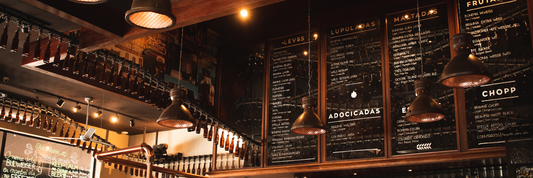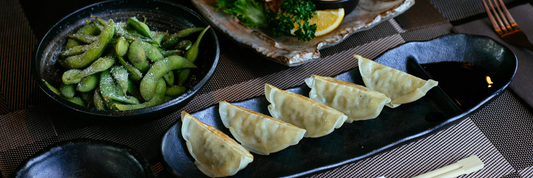Food truck models play a pivotal role in shaping your mobile food business. From compact carts to full-sized trailers, each model offers distinct advantages in mobility, capacity, and cost. Understanding the differences between food trucks, trailers, and carts helps entrepreneurs choose the right setup to match their culinary vision and market strategy.
- Types of Food Trucks: Choosing the Best Model for Your Business
- Food Truck Industry Trends: What’s Shaping the Future of Mobile Food Businesses
- 30+ Food Truck Ideas to Inspire Your Mobile Culinary Business in 2025
What Are Food Truck Models?

Food trucks become a staple in the modern culinary landscape, offering diverse meals on wheels. Understanding food truck models is essential for those looking to enter the business or expand their existing operations.
Definition and Scope: Food Trucks vs. Trailers vs. Carts
- Food Trucks: These are self-contained mobile kitchens built on vehicle chassis, allowing for easy transportation and a wide range of menu options.
- Food Trailers: Typically towed by another vehicle, food trailers offer a larger cooking space and are ideal for stationary setups at events or festivals.
- Food Carts: Smaller and more compact, food carts are great for limited spaces. They often serve simpler menus and can be easily moved.
Differences in Design, Mobility, and Operational Capacity
- Design: Food trucks tend to have a larger kitchen area and accommodate more equipment, while trailers provide flexibility in location with ample space but require a towing vehicle.
- Mobility: Trucks are the most mobile, allowing for dynamic positioning in different locations, while trailers offer semi-mobile options. Carts are the least mobile but excellent for pedestrian-heavy areas.
- Operational Capacity: Trucks usually support a more extensive menu due to their size. Trailers can handle high-volume events, and carts are suited for quick, grab-and-go items.
Why Choosing the Right Model Matters for Your Success
Selecting the appropriate food truck model is crucial. The right choice influences daily operations, service capability, and ultimately, profitability. An ill-fitting model can lead to inefficient use of resources, limiting your ability to serve customers effectively.
Most Popular Food Truck Models by Category

Different categories of food trucks cater to various culinary needs and serve different business strategies. Here’s an overview of the most popular models.
Standard Step Van Conversion
These conversions transform delivery vans into fully functional kitchens. Their space efficiency allows for numerous cooking setups, ideal for businesses with extensive menus.
Food Trailers for Fixed-Location Events
Food trailers excel in environments where stationary service is advantageous, like fairs or festivals. Their larger space provides room for extensive equipment and storage.
Food Carts and Kiosks for Compact Areas
Perfect for busy urban locations, food carts and kiosks are designed for speed and ease of service. They thrive in fast-paced environments where simplicity is key.
Specialty Trucks (BBQ Smokers, Pizza Ovens, Coffee Bars)
Specialty trucks cater to niche markets. BBQ smokers offer unique flavors, pizza ovens create an experiential meal, and coffee bars attract morning crowds. Each is designed to cater to specific customer tastes.
Pros and Cons of Different Food Truck Models

Every model has its advantages and disadvantages. Below, we explore the pros and cons to help you make an informed decision.
Cost Comparison and Operational Efficiency
- Trucks: Higher initial costs but offer greater flexibility and efficiency in operations.
- Trailers: Typically lower purchase costs, though they may incur additional towing expenses.
- Carts: The lowest startup costs but may limit menu diversity and operational output.
Space, Equipment Compatibility, and Storage
- Trucks and Trailers: More space allows for a broader range of equipment and easier kitchen workflow.
- Carts: Limited storage can restrict the type of food served, making it necessary to be strategic with menu selection.
License and Zoning Considerations by Model
- Operating any food truck model will require licenses, but the complexity may vary.
- Trucks might face stricter zoning laws, while trailers may be tied to specific locations or events.
Which Food Truck Model Is Right for You?

Choosing the suitable food truck model is not about which is the most popular, but rather which fits your business objectives. Consider the following factors.
Business Type: Burgers, Tacos, Coffee, Desserts, Vegan, etc.
Your menu will heavily influence the model you choose. For instance, a burger truck might benefit from the space of a step van conversion, while a dessert cart could efficiently operate with a smaller food cart.
Daily Sales Expectations and Customer Flow
Evaluate your expected customer volume and sales strategy. A high-traffic area may justify a larger, more complex model, while a small, niche offering might thrive with a simpler setup.
Setup Time and Maintenance
Consider how much time it takes to set up your food truck for business. Trucks typically require more setup time, while carts can be quick to open. Assess the ongoing maintenance and upkeep costs, as some models can be more demanding than others.
Customizing Food Truck Models for Your Brand

A unique brand presence can set your food truck apart. Here are essential elements to consider in customization.
Design Considerations: Layout, Workflow, Signage
- Layout: Efficient kitchen design is vital. Plan your workflow to minimize movement, making service faster.
- Signage: Eye-catching signs are crucial for attracting customers. Invest in professional designs that reflect your brand.
Kitchen Equipment Planning
Choose equipment based on your menu and available space. Always consider compatibility; ensure that kitchen appliances fit within your truck’s layout without compromising mobility or efficiency.
Leasing vs. Buying a Food Truck Model

Benefits and Risks of Leasing for Startups
Leasing a food truck can be an appealing option for new entrepreneurs. It offers several benefits:
- Lower Upfront Costs: Leasing usually requires a smaller initial investment compared to buying. This allows startups to allocate capital towards other areas, such as inventory or marketing.
- Flexible Terms: Lease agreements often come with terms that allow for easier upgrades or changes in the model as the business grows or trends change.
- Maintenance Included: Many leasing companies include maintenance in their contracts, reducing unexpected expenses.
However, there are risks to consider as well:
- No Ownership Equity: At the end of a lease, you do not own the truck, which can be a disadvantage if you desire long-term investment and value growth.
- Usage Restrictions: Leasing agreements might impose restrictions on how much you can use the truck or the modifications you can make.
Long-term ROI for Ownership
Owning a food truck can provide substantial long-term return on investment. Consider these points for ownership:
- Asset Value: A well-maintained food truck retains value over time, and you may sell it later for a good price.
- Customizations: As an owner, you have the freedom to modify your truck according to your brand needs without lease constraints, enhancing customer experience.
- Profit Retention: All profits generated belong to you without lease payments diminishing returns over time.
What to Check Before Purchase
Before finalizing the purchase of a food truck, conduct thorough checks:
- Vehicle Condition: Inspect the truck for any signs of damage or wear. A reliable mechanic should evaluate the engine and body.
- Health Compliance: Ensure the truck complies with local health regulations. This includes proper equipment and sanitary standards to avoid future fines.
- Licensing and Permits: Verify that all necessary licenses and permits are obtainable and ensure they are up-to-date.
Best Food Truck Models for New Entrepreneurs

Low-Cost, Efficient, and Beginner-Friendly Models
Several food truck models are excellent choices for those starting. Key examples include:
- Chevy Express 3500: This model offers good fuel efficiency and a spacious interior, perfect for food preparation.
- Ford Transit: Known for its reliability and customizable options, the Ford Transit is ideal for various types of food businesses.
- Mercedes-Benz Sprinter: A bit pricier, but offers great durability and a professional appearance, making it suitable for gourmet food trucks.
Models Suited for Small Towns vs. Urban Centers
The type of food truck model you choose can depend heavily on your operating location:
- Small Towns: Compact models like the Nissan NV200 are great as they require less space and are easier to maneuver in smaller areas.
- Urban Centers: Larger models like the Ford F-650 can accommodate high volumes and are built to stand out in busy city settings.
Real Examples from Successful Startups
Many successful food truck businesses validate the choices in models:
- Kogi BBQ started with a simple truck, focusing on quality food, and quickly gained fame across Los Angeles.
- The Lobos Truck utilized a Ford Transit to create an efficient operation, specializing in gourmet tacos and snacks.
Where to Find Reliable Food Truck Models

Top Vendors in North America
Finding a reputable vendor is crucial in purchasing a food truck. Some notable vendors include:
- Food Truck Empire: Known for connecting buyers with custom builds and used trucks across North America.
- The Food Truck Company: Specializing in both new and refurbished trucks, they provide various models tailored to specific needs.
Custom Fabricators vs. Ready-Made Trucks
Deciding between custom fabrication and ready-made trucks involves understanding your specific needs:
- Custom Fabricators: Offer tailored solutions that can incorporate unique kitchen designs and equipment, suited for specialized menus.
- Ready-Made Trucks: Often more affordable and delivered faster, these are suitable for faster startup times and less complex operations.
Checklist When Buying Used Trucks
When exploring used trucks, consider a detailed checklist:
- Vehicle History Report: Always obtain a report to check for past accidents or issues.
- Inspection for Equipment: Ensure that kitchen equipment meets safety standards and operates correctly.
- Price Comparison: Research the market to understand the going rate for similar models to negotiate effectively.
Conclusion
A successful food truck operation begins with selecting the right model that aligns with your goals and market demands. Consider your business vision, target audience, and the local competition when making your choice. The food truck model you select should resonate with your brand identity, be it casual or upscale, and cater to the preferences of your customer base.









